Do you want to start budgeting but don’t know how or where to start?
Before my husband and I started budgeting, we spent money without any thought or plan. This led to enormous debt and no emergency fund. So, when we were hit with unexpected expenses, we were forced to go deeper into debt.
We were sick of living paycheck to paycheck and decided we needed to take control of our money. We started following Dave Ramsey’s Baby Steps and learned how to create a zero-based budget.
After we started budgeting, we found we actually had more money to save and pay towards our debt. We were able to pay off $227,000 of debt because we learned how to budget our money.
So, today I want to show you how to create a zero-based budget and streamline your finances.
Related:
Dave Ramsey’s 7 Life-Changing Financial Baby Steps
How to Slay Your Debt Using the Debt Snowball
Disclaimer: This post may contain affiliate links. This means I receive a small commission, at no extra cost, if you purchase using the links below. Please see my earnings disclaimer for more details.
Table of Contents
What is zero-based budgeting?
The zero-based budgeting approach is assigning every dollar a place within your budget. So, basically, your income minus expenses should equal zero.
Initially, we thought we had to start and end each month with a zero balance in our bank account. This is NOT the case.
It just means that every dollar should be accounted for by assigning it a category, even if you have to put extra into savings to total zero.
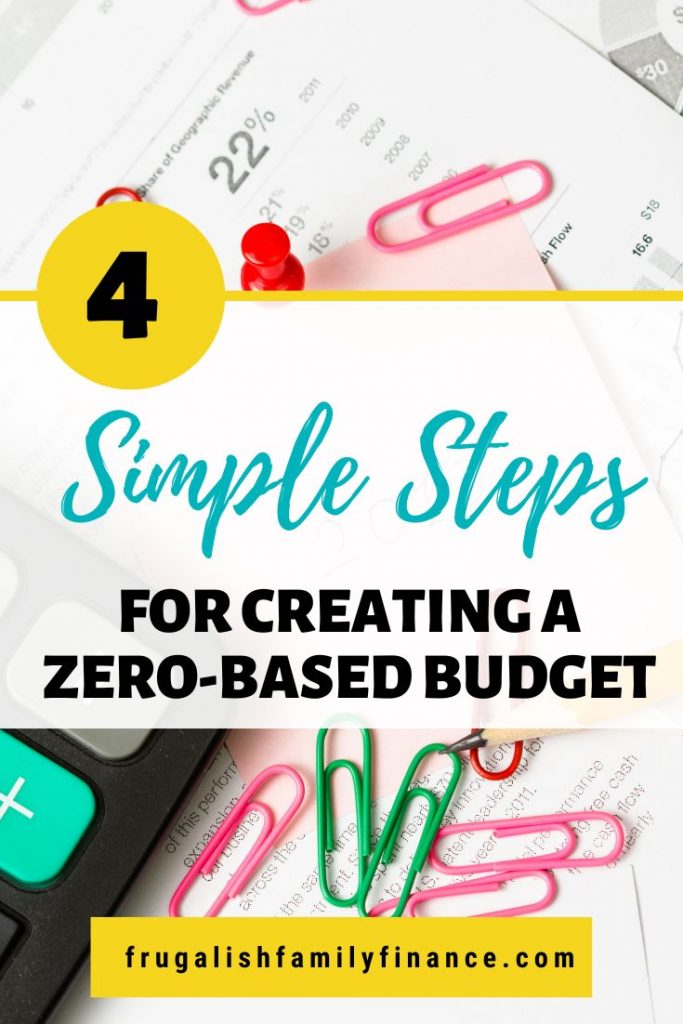
How does a zero-based budget work?
The goal of zero-sum budgeting is to have no money left over at the end of the month. You want to put money into different categories, for example, housing, food, transportation, and clothing.
If you have money left over after budgeting, decide where to put the remainder. Then, you track your spending to ensure you are staying on budget.
How to create a zero-based budget
A zero-based budget, in my opinion, is the easiest to create and stick to. There are four simple steps to creating a zero-sum budget.
1. List your monthly income
First, list your total monthly income. This includes all sources of income, such as side hustles, pensions, child support, and spousal support.
2. List your monthly expenses
Next, list your expenses into categories.
It’s helpful to break your categories down into essential and non-essential expenses.
You’ll want to list out all your essential expenses first. Dave Ramsey refers to these essential categories as the four walls of your budget.
Just like walls support a house, these four essential categories support your life and budget.
- Housing
- Utilities
- Transportation (including car payment and car insurance)
- Food
After your essential expenses are listed, continue with the non-essential expenditures. This is everything else that doesn’t fall in the above essential categories.
- Credit card debt
- Student loans
- Subscriptions
- Family fun
- Restaurants
- Gym memberships
Prioritize your non-essential bills in order of priority. When you have that done, total it up.
3. Income minus expenses equal zero
At this point, your income(s) and expenses are totaled.
Subtract the total expenses from the income, and it should equal zero. It’s that simple!
You may need to adjust your budget to get to zero, but in the end, your goal is zero dollars.
If you don’t have enough to cover your monthly expenses, look and see what you can cut to ensure all your expenses are covered.
And if you have a surplus, this is extra money you can put in the debt repayment or savings account category.
4. Keep track of your spending
Your budget doesn’t end there. Lastly, you need to track your spending throughout the month as you spend it. This will keep you on track and accountable.
Example of a zero-based budget
Here is our budget for September to give you an idea of how it looks.
Monthly Income
| Paycheck #1 | $3055 |
| Paycheck #2 | $3055 |
| Total | $6110 |
Monthly Expenses
| Mortgage | $1012 |
| Water Bill | $35 |
| Electric | $190 |
| Internet | $99 |
| Gas | $60 |
| Insurance (car & home bundled) | $145 |
| Car Maintenance | $65 |
| Groceries | $500 |
| Husband’s Expenses (gas & work expenses) | $550 |
| Cellphone | $115 |
| Pest Control | $57 |
| Streaming Subscriptions | $34 |
| Blog Expenses | $50 |
| School Lunch | $175 |
| Soccer Expenses | $60 |
| Haircuts | $50 |
| School Activities | $65 |
| School Pictures | $80 |
| Birthday Gifts | $115 |
| Playstation Network | $60 |
| ABC Mouse | $45 |
| Miscellaneous | $100 |
| Restaurants | $75 |
| Retirement | $878 |
| Savings | $1495 |
| Total | $6110 |
Income – Expenses = $0
| Monthly Income | $6110 |
| Monthly Expenses | $6110 |
| Total | $0 |
How to implement a zero-based budget
To implement a zero-based budget, you must start a couple of days before the month begins.
You may want to print out a couple of months’ worth of bank statements to look at your spending habits and determine your essential vs. non-essential spending.
Then, start by budgeting the essentials. This will ensure that you have the basic needs covered by your income. Next, prioritize the non-essentials in order of importance. Work your way down the list until you get to zero.
If you find you don’t have enough to cover your expenses, you need to look and see where you can make budget cuts or save some extra money. Here are a few ideas.
- Stop eating out and cook at home
- Cancel your gym membership and subscriptions
- Find ways to save on groceries by eliminating convenience foods, using cashback apps, and coupons
- Save money on utilities
- Increase your cash flow by selling stuff, starting a side hustle, or getting a second job
If you have money left over after budgeting your essential and non-essential expenses, you can assign it to extra debt payments or savings.
How does a zero-based budget compare to other budget methods?
There are several methods of budgeting.
- Cash envelope system
- Traditional budgets
- Proportional budgets
- Zero-based methods
A zero-based budgeting system is different because it forces you to do something with every dollar. Budgeting this way requires you to move any extra funds into saving, paying off debt, or investing. The money isn’t allowed to just sit in your bank account.
Related: How To Start Cash Stuffing For Beginners In 2023
Advantages of zero-based budgeting
Zero-based budgeting has many benefits, but here are a few of the most important.
Gives you complete control over your money
Making a monthly zero-based budget gives you a whole picture view of your finances. It lets you see how much is coming in and going out throughout the month, so there are no surprises or wondering where your money went.
Makes you spend more intentionally
Budgeting makes you more mindful of the purchases you make. When you sit down for your budget meeting, you discuss every expense or purchase for the upcoming month.
There is no room for much impulse spending; all your money is thought out and planned.
Related: 5 Secrets to Master Your Money Mindset
Gives you permission to spend
If the budget has been discussed and all categories have been approved, you get to buy it. No questions and no guilt about spending money!
“It’s freedom and permission to spend your money on things that are important to you!”
Rachel Cruze
Disadvantages of zero-based budgeting
As with everything, there are disadvantages to this budgeting method as well. But I also included tips to help overcome these challenges!
It’s time-consuming
Zero-based budgeting can be a bit time-consuming at first. Especially if you don’t have enough income to cover your expenses. It takes time to learn.
But like everything, you have to practice to get good at it. After a couple months of zero-based budgeting, it’ll become automatic. You’ll find your grove, and budgeting will take just a couple minutes.
Variable expenses are challenging
Irregular expenses can be challenging because they change from month to month.
A couple tips that helped us with variable expenses are…
- We changed our billing to an even monthly plan for our electricity and other bills that would allow it. This way, every month is the same.
- We make a miscellaneous budget category within our budget that catches any expenses we miss or any higher-than-expected bills.
The best zero-based budgeting apps
If you’re not a spreadsheet or paper and pencil person, some great budgeting app options are available.
Here are a couple great options, both paid and free.
EveryDollar App
EveryDollar App is a free budgeting tool by Ramsey Solutions. It is based on the zero-based budgeting method that Dave Ramsey recommends.
Mint
Mint is a free financial tool by Intuit. It lets you see your in-depth financial picture, from your credit score to budgeting.
You Need A Budget (YNAB)
YNAB is a paid subscription that helps teach you how to budget and achieve your financial goals.
Related: How To Use EveryDollar App To Better Manage Your Money
Variable income with zero-based budgeting
You can still use the zero-based budgeting method with an unpredictable income. You would plan for the lowest income expected when creating your monthly budget. Then, prioritize all your expenses, starting with the essential expenses.
You would start paying the bills in the order you listed them when you get paid. When the next paycheck comes, pick up where you left off on your list of expenses.
I would divide your grocery budget into weeks and set the amount you need aside for groceries before paying bills. This way, you have money for food.
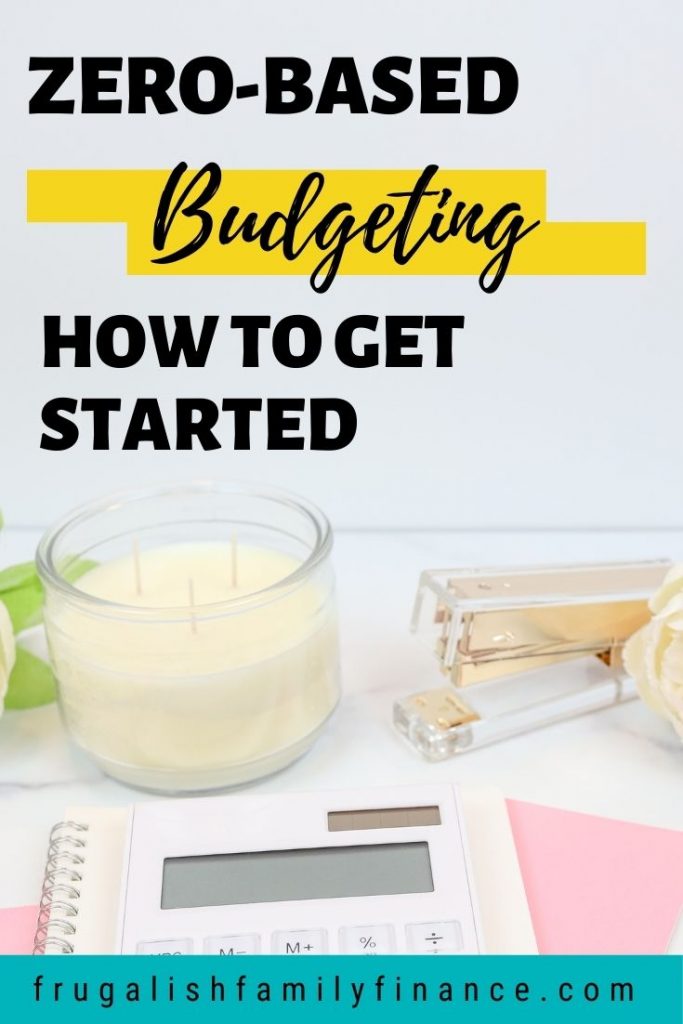
Tips for zero-based budgeting
Although budgeting is pretty easy, it can take a couple tries before it feels natural. Here are a couple budgeting tips that I think are the most important as you start your budgeting journey.
Budget together
A budget absolutely can not work if you and your significant other aren’t on the same page. Finances are among the top marriage killers, so you must discuss your financial situation and start budgeting together.
Set a date and time every month to have a budget meeting. This way, it becomes a routine.
Make sure to discuss the items in your budget. Just know that sometimes not every item will be approved by both of you. Stay calm, discuss why it’s important, and make compromises…you’re a team!
Expect Mistakes
You’re not going to get your budget right the first time you do it. You’ll most likely forget some things and probably go over budget.
It took us three or four months before we got the hang of the whole budgeting thing.
It can feel discouraging at first, but it will get easier after a couple tries…so don’t give up!
If you forget to budget something, revisit and revise your budget together throughout the month.
It helps to keep a spreadsheet or a piece of paper with yearly or irregular expenses so you don’t forget about them. Also, we keep a set amount in our checking as a cushion for if we really go over budget. This way, we don’t have to worry about over withdrawing our account.
Create a realistic budget
Keep your budget realistic, or you will not stick to it. Make sure to set a reasonable amount for each category you budget.
Don’t try to make budget cuts where you know you can’t. You’re setting yourself up for failure!
Set financial goals
Set short-term and long-term goals for your personal finances and review them monthly at your budget meeting.
Knowing your financial goals’ status will motivate you to stay on budget.
Set these goals as a couple and even include your kids if they’re old enough (it’s never too early to teach your children money management).
Conclusion
The zero-based budgeting method is the easiest way to manage your money. It helps you budget every dollar so you can save, invest, and pay off more debt. It helps you get better control, improves your spending habits, and gives you the freedom to spend without guilt.
Zero-based budgeting helped us to see our entire financial picture and create goals and dreams for our future.
If you follow the four simple steps to creating a zero-based budget, you’ll be on your way to budgeting like a pro in no time!
What budgeting struggles do you have? Leave a comment below!
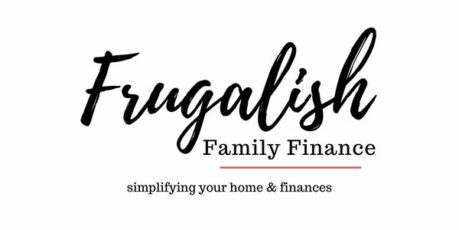
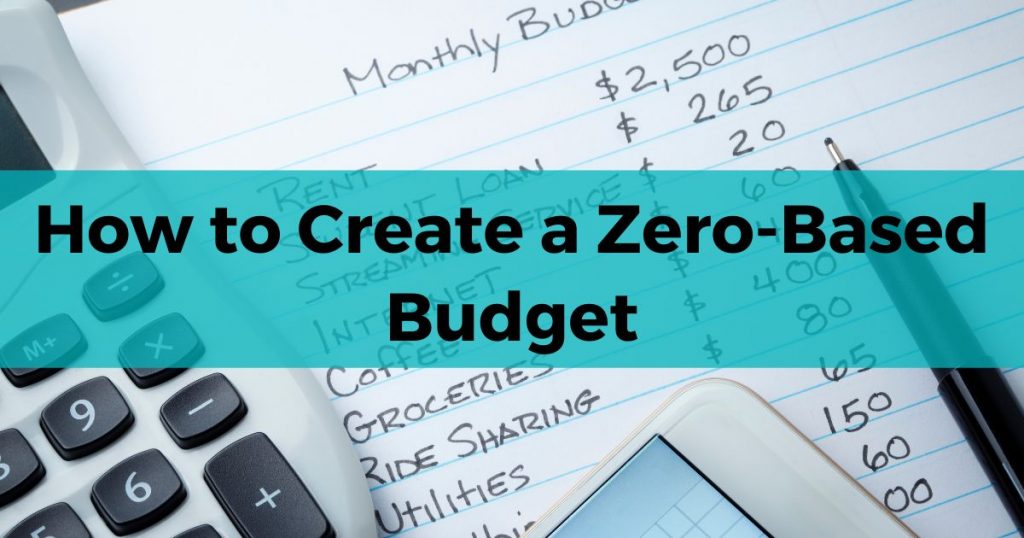
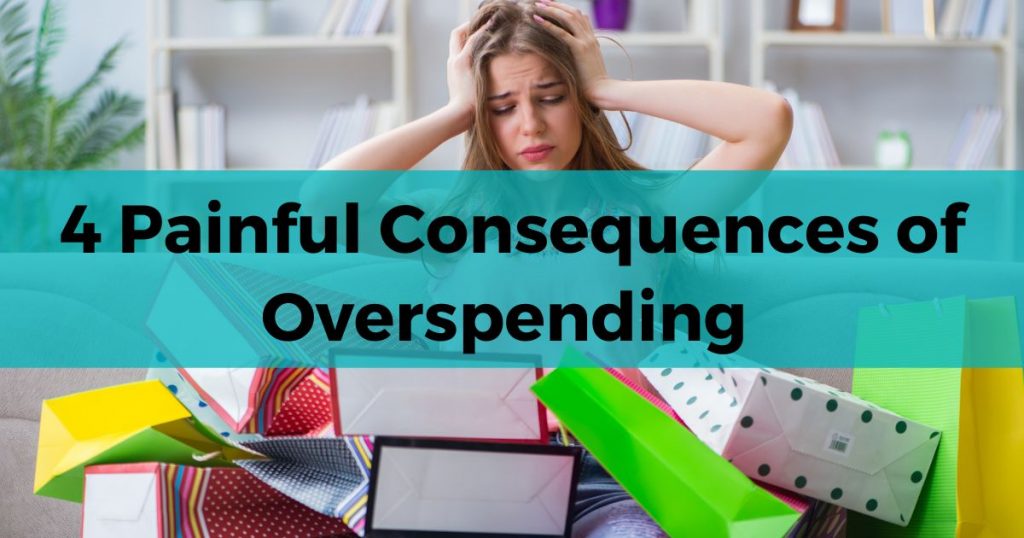
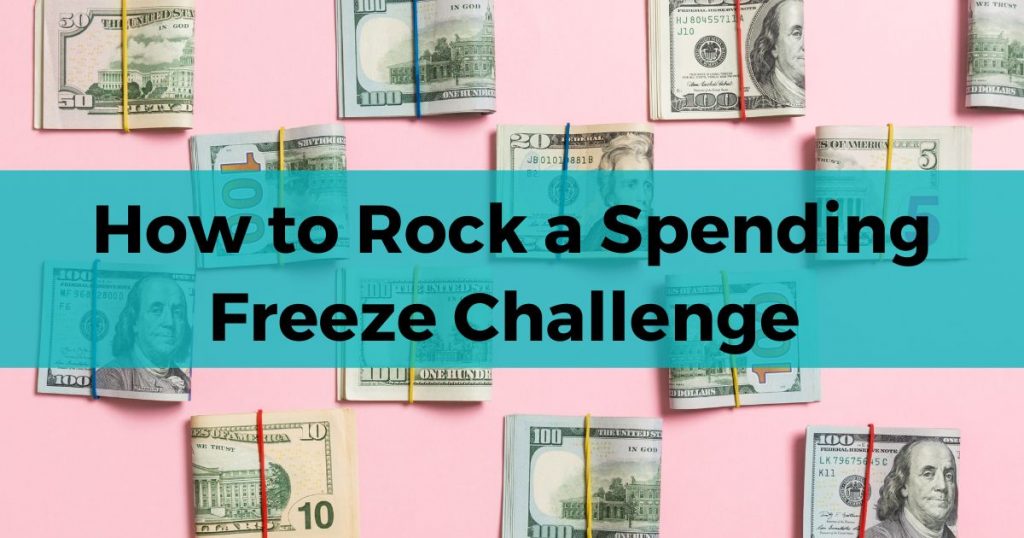
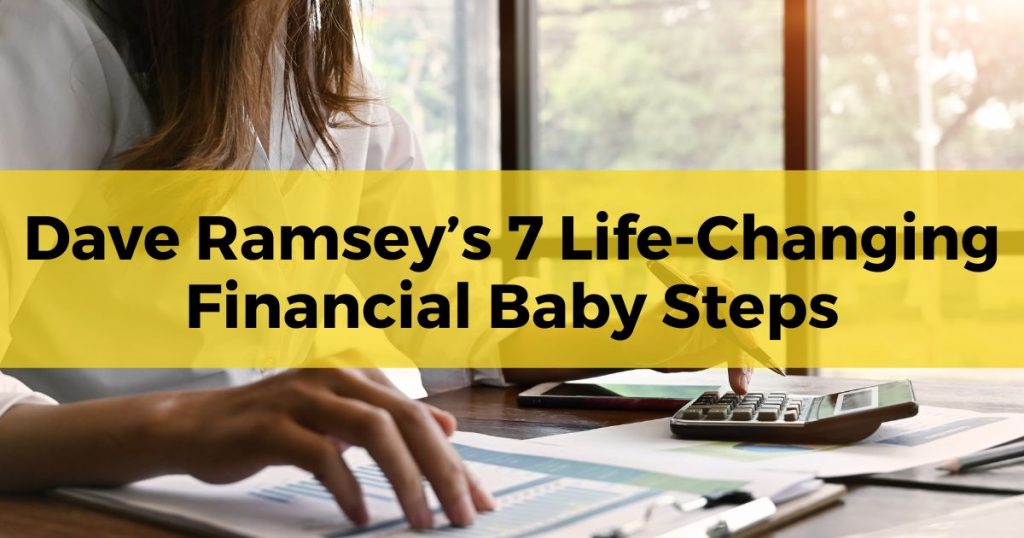
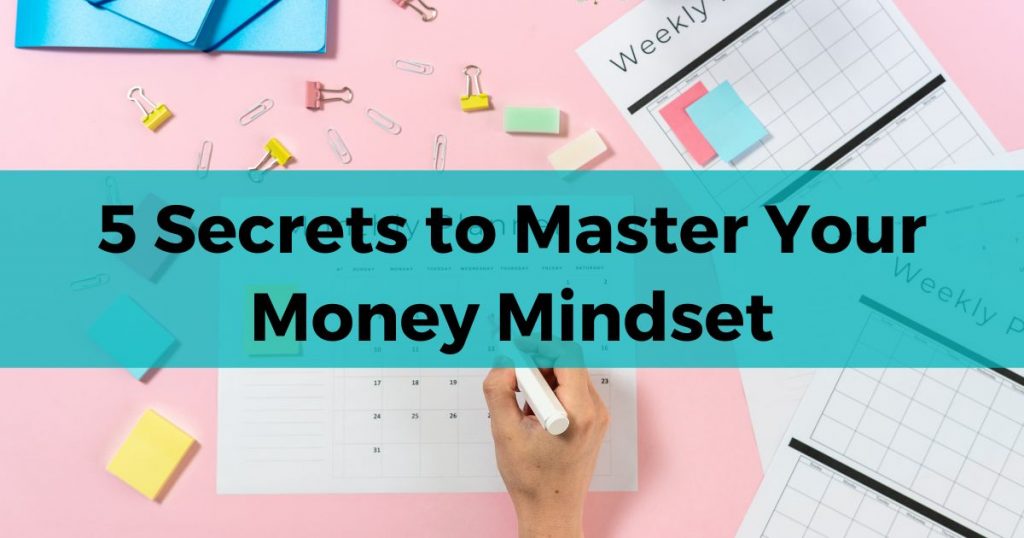
Zero-based budgeting was a lifesaver for us! It got my husband and I on the same page and became a fun game to see how much money we saved. When we finally got out of all of our debt except our mortgage, I felt free. Before a zero-based budgeting system, I had no idea where my money was going. Now we are the boss of it! I highly recommend this method. Thank you for spelling it out so clearly.
Thanks for your comment! It really is a game-changer! I look forward to our budget meetings every month to discuss our budget and how much we saved the previous month. I am such a nerd…lol!
Am glad to learn about zero-based budget. I will consider it as part of my personal finance strategies.
Glad you found it helpful!
I do something similar to this but have never successfully fully implemented it so I need to give this a shot. How often do you check if you are sticking to the budget throughout the month?
I never had any success with any other budget until we started using the zero-based budgeting method. I try to track spending everyday, but if not every couple days. I started using the EveryDollar app because we were having trouble keeping track on paper. So, both my husband and I can access the app and see our planned budget, our spending, and the remaining balance. I wrote about it here if you want to check it out.
Great financial budgeting tips. Thanks for the how-to
Thank you for the budgeting tip, i might try and re do my budget based on some of these ideas
This post is super helpful. Thank you for sharing!
Great job at taking us through this step by step from start to finish! This article should be in the gift basket of every newlywed couple and college graduate out there! Very much needed!
Thanks for sharing your budget tips!
I like this type of ultimate guide, especially on topics like this. And using a zero-based budget is definitely the best way to manage one’s personal finances. Thank you so much for sharing this valuable piece 🙂
I recently made a blog post about paying off your debt, and within that, I included a tip; do a zero-based budget, I think your article would do great as a source, thus I thought of linking to it 🙂
https://the-wealth-blog.com/how-to-pay-off-your-debt-fast/
This is a very detailed and helpful post on zero-based budget. Thank you for laying it out so nicely. Very helpful financial information!